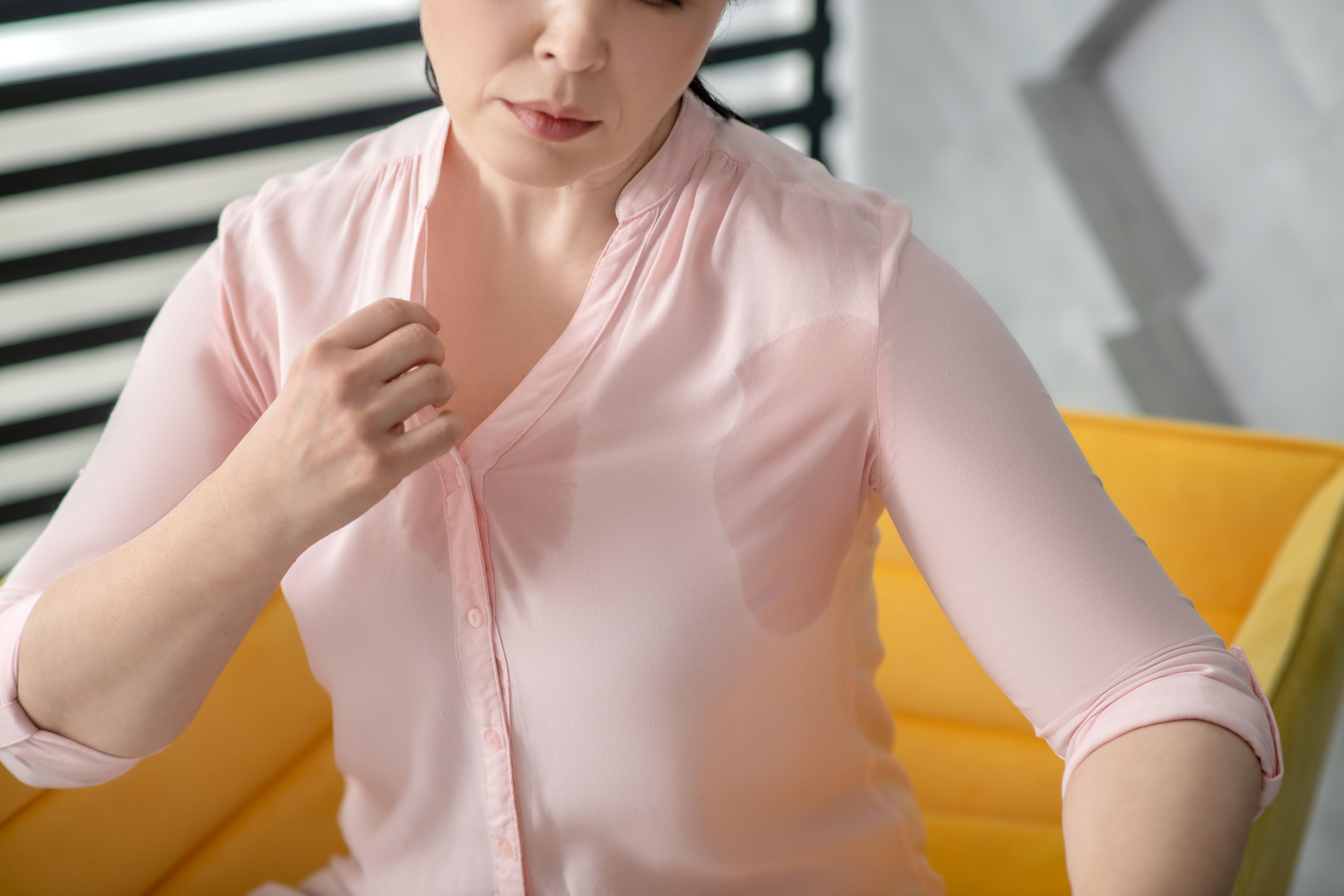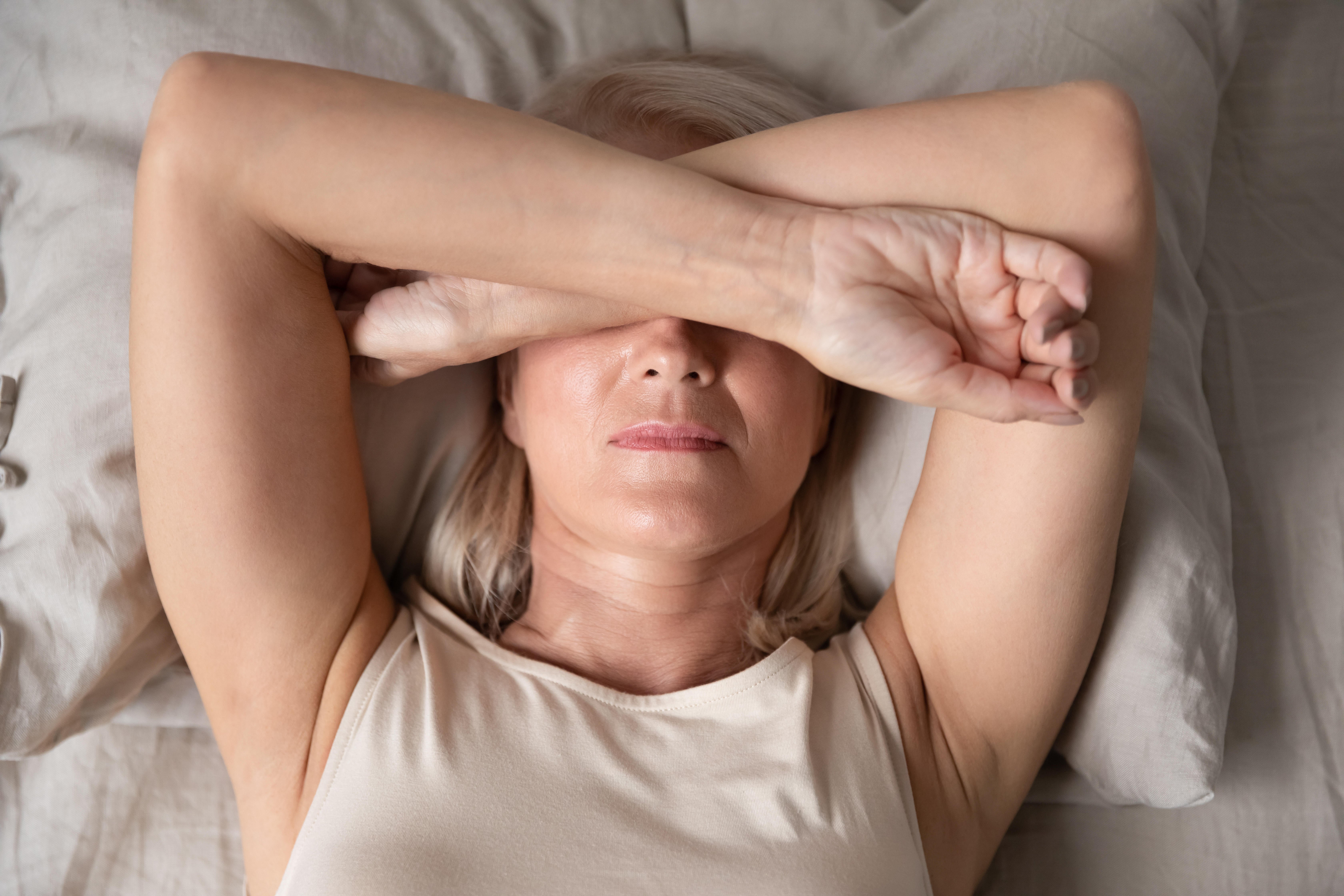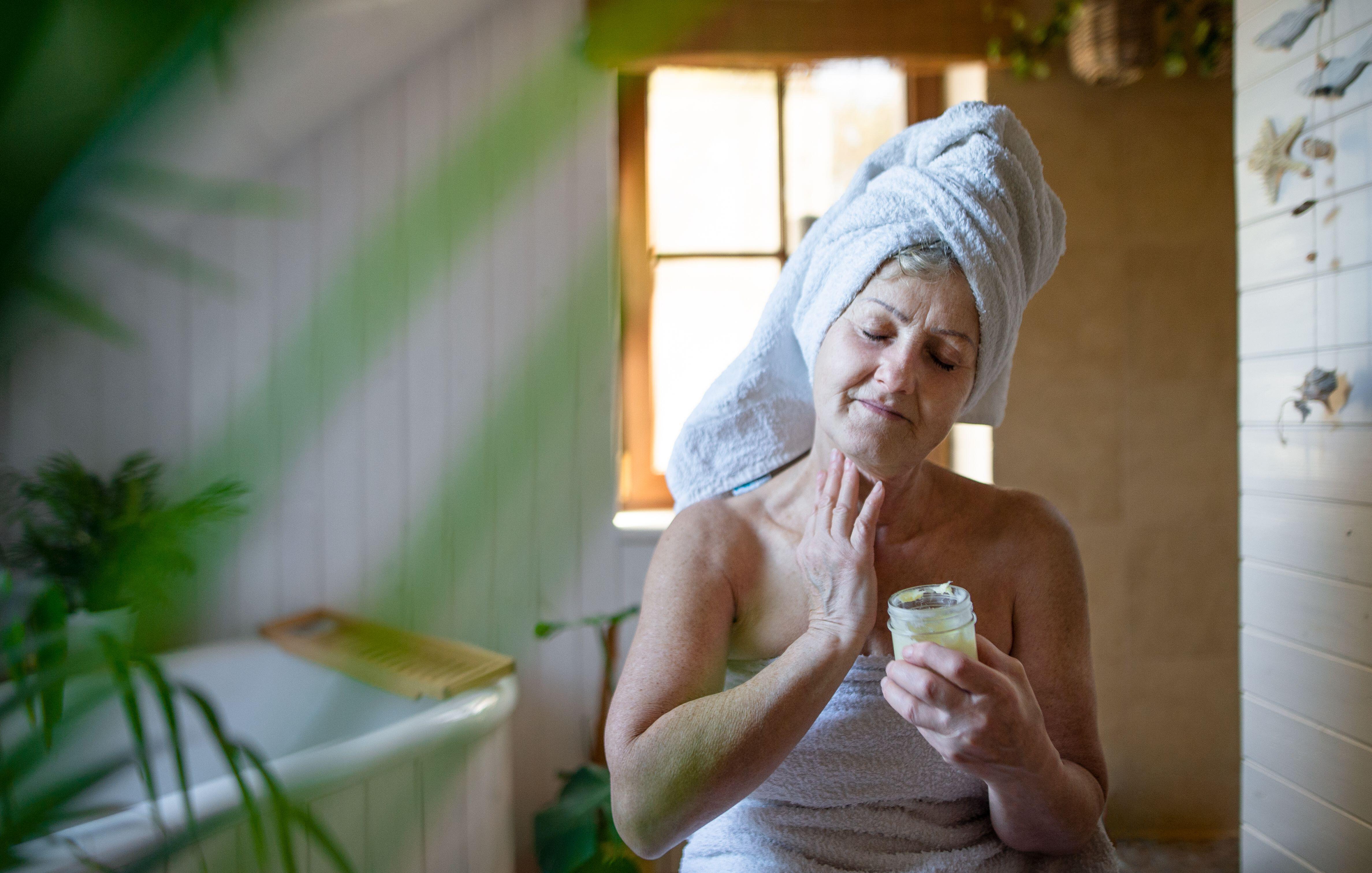
Your support helps us to tell the story
This election is still a dead heat, according to most polls. In a fight with such wafer-thin margins, we need reporters on the ground talking to the people Trump and Harris are courting. Your support allows us to keep sending journalists to the story.
The Independent is trusted by 27 million Americans from across the entire political spectrum every month. Unlike many other quality news outlets, we choose not to lock you out of our reporting and analysis with paywalls. But quality journalism must still be paid for.
Help us keep bring these critical stories to light. Your support makes all the difference.
Women going through menopause are often the ones who struggle the most during the winter seasonal shift.
The weather has been known to heighten many menopausal symptoms, making the colder months a particularly challenging time for women who are experiencing the change in hormones.
But why do some women experience these symptoms more severely during the winter period, and what tips and lifestyle changes can help?
“As any menopausal woman will confirm, hot flashes and night sweats can happen all year long, however they can be particularly troublesome during the winter months,” says Dr Katie Barber, GP and accredited menopause specialist, who is currently working with Besins Healthcare on its Language Of Menopause campaign. “As the central heating gets cranked up, menopause symptoms can start to feel unbearable.”
Here are a few symptoms that are exacerbated during winter…
Hot flashes

“Hot flashes are thought to occur because of a narrowing of the thermoneutral zone in the hypothalamus, caused by decreasing levels of oestrogen,” explains Dr Harriet Connell, GP and menopause specialist at Health and Her. “This means that even slight changes in body temperature can lead to discomfort and sweating.
“During winter, frequent transitions between cold outdoor environments and heated indoor spaces can trigger sudden heat surges and make hot flashes harder to manage.”
Dr Elise Dallas, women’s health GP specialising in menopause at The London General Practice, adds: “Additionally, staying cosy in winter often involves consuming more hot drinks, spicy foods, or alcohol, all of which can trigger or worsen hot flashes and night sweats.”
Aching joints

“Cold, damp weather can cause joint pain even in those who are not peri-menopausal, however aching joints are one of the main symptoms of menopause. Therefore, women going through menopause can feel this symptom a lot more severely in winter,” says Dr Aarthi Sinha, GP and ambassador for menopause platform Issviva. “There is also less sunlight in winter, meaning we are more likely to be deficient in vitamin D, which can also contribute to bone and joint aches and pains.”
Skin changes
“Skin changes can feel worse during menopause in winter, primarily due to any skin that is dry and uncomfortable being exacerbated by cold, low-humidity environments,” explains Dallas. “Central heating in cold climates and air conditioning in warmer areas can contribute to this dryness.
“The drop in oestrogen levels during menopause also leads to decreased skin hydration, resulting in dry and itchy skin.”
Sleep issues

“In winter, reduced exposure to natural sunlight can lower serotonin levels, which may impact mood and sleep,” explain Dallas. “Less daylight can also affect your circadian rhythm, making it harder to regulate melatonin production, which helps control sleep.
“Additionally, the cold weather can lead to feeling overly bundled up at night, which may contribute to discomfort and night sweats, which impacts sleep.”
What could help women manage these symptoms?
Drink lots of water
Staying cool and hydrated can help manage the intensity of hot flashes.
“Drinking plenty of water during the day to keep yourself hydrated is important for staying cool during the night,” advises Barber. “A cool shower before bed can also work wonders.”
Keep your joints warm
“Keeping joints warm with layers, heat pads, or warm baths can improve circulation, and supplements like omega-3 fatty acids and magnesium may support joint health and reduce inflammation,” says Dallas.
Keep cool during the night
“Don’t overheat at bedtime, make sure you are wearing cotton or lightweight nightwear,” advises Dr Samantha Wild, women’s health clinical lead at Bupa Health Clinics. “It’s also key to turn off the heating at night, otherwise you may find you experience night sweats.”
Connell also recommends cooling mattress toppers or cooling pads.
“They can keep one side of the bed cool without affecting the partner, which helps improve sleep quality,” says Connell.
Look after your skin

“Hydration – both internal (drinking 1.5 litres of water daily) and external (using moisturisers) – is essential to keep skin healthy,” explains Connell. “Look for moisturisers that contain hyaluronic acid or ceramides, as these ingredients help lock in moisture and strengthen the skin barrier.”
Move your body
“Pilates and yoga are both great forms of exercise if you are struggling with joint pain,” says Wild. “If you feel up to doing something a bit higher intensity, walking or swimming work really well too.”
Follow a healthy lifestyle
“Management [of menopause symptoms] should encompass a holistic approach, such as taking a multivitamin, eating healthily (especially ensuring a good amount of protein intake) and making sure you get enough sleep,” advises Sinha.
Barber also recommends avoiding any potential ‘triggers’ such as spicy foods, hot drinks before bed, alcohol and caffeine.







